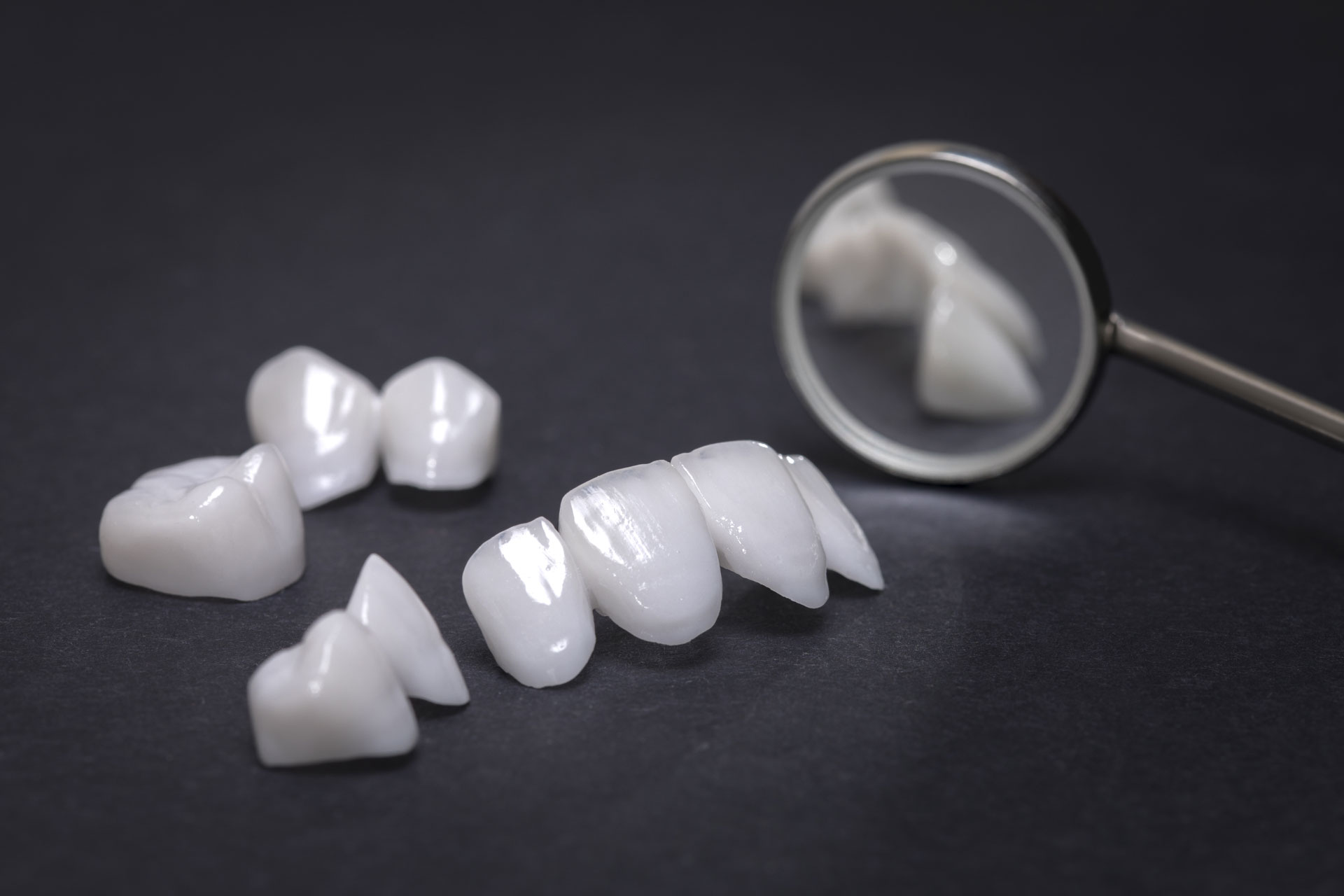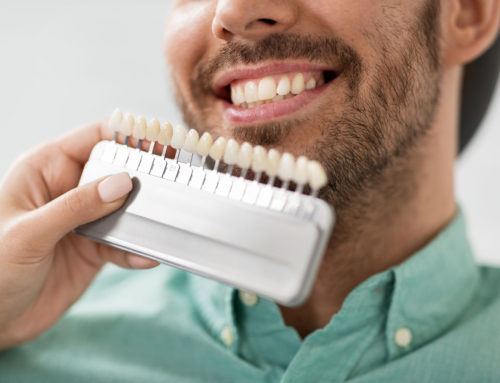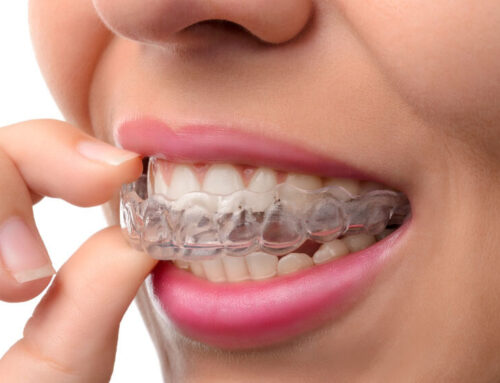Cosmetic dentistry—also called dental restoration—is the process of filling, replacing, or covering damaged or imperfect teeth. It usually involves a substance mimicking the natural function and appearance of damaged, missing, or decayed tooth structures. For teeth with extensive damage, veneers and crowns are among the most popular types of restorative therapies. In fact, the results often speak for themselves!
What’s the difference?
Veneers are thin shells with the color of teeth applied to the front surface of the existing teeth. Traditionally, dental veneers are porcelain, though some veneers are now made from resin composites instead. The veneers bond to your teeth and require very little maintenance outside of typical oral hygiene practices.
Crowns are just as common as veneers but serve a more advanced role in cosmetic dentistry. They’re generally used to treat teeth with severe decay—rather than being applied only to the front, crowns cover the entire tooth. They’re also usually about twice the thickness of veneers, making them much stronger.
Which is right for you?
If you’re hiding your smile, it’s time to explore dental restoration options to restore your self-confidence. A skilled dental professional can assist you in treating tooth-related problems requiring a cosmetic solution. Consulting with a dentist is usually the best way to determine whether veneers or crowns are right for you.
Dental veneers and crowns both have their place in cosmetic dentistry, but their use depends on every individual’s situation. The extent of the tooth’s damage or rot, as well as the placement of the tooth, will determine the best course of action and whether the dentist will recommend veneers or crowns.
Making the choice for veneers
In most cases, veneers are more conservative treatments compared to crowns. The procedure is less invasive, and less of the original tooth structure is removed during the installation of the veneer. Because of this, veneers are usually the more attractive option for people with mild to moderate tooth decay. Here’s why someone might choose veneers:
- Less invasive than crowns: Veneers are one of the more conservative dental restoration measures available. As a result, they’re a more attractive option than crowns for many patients. If you only have moderate tooth decay, you may want to go with a veneer.
- Improves the appearance of teeth: Your dentist will customize veneers to mimic the color of your teeth. This allows them to hide any discoloration or decay without standing out among your other teeth.
- Long-lasting protection: With proper installation, maintenance, and oral hygiene, veneers can last as long as a decade. Veneers are generally durable and a long-lasting dental restoration solution.
- Strong and reliable: Veneers are typically made from porcelain, which can become brittle with age. However, resin-composite veneers are becoming increasingly popular and tend to hold up better over time.
The case for crowns
Despite being different, crowns come with their own benefits and advantages. Consider talking to your dentist about a crown as a restorative dental technique and learn more about why they’re such a reliable solution for cosmetic dentistry procedures. Here are a few reasons your dentist may recommend a crown:
- Strong and durable: Crowns are strong and even more durable than veneers because they cover the entirety of the tooth and are nearly twice as thick. They’re less likely to chip or shatter than veneers and can last as long as 15 years.
- Changes tooth shape and color: Decayed teeth change both in shape and color, altering your smile. Crowns restore a tooth’s natural shape to match the rest of the teeth in your mouth. The result is a natural-looking, straight smile.
- Safeguards against further damage: One of the most important benefits of crowns is their ability to stave off further tooth damage. They not only protect teeth following procedures like a root canal, they can also hold damaged teeth together.
- Options for everyone: Most crowns are either porcelain, metal, or a combination of the two. Pure porcelain crowns tend to be more expensive compared to mixed-material or metal crowns—but they’ll last!
Consult with a cosmetic dental expert
At the end of the day, the best restorative dental therapy will depend on your personal circumstances. The amount of damage sustained by your tooth, along with the placement of the tooth, will help your dentist make a recommendation between veneers and crowns. Don’t forget to ask about the types of materials they can use to install veneers or crowns, and have them explain the benefits as they pertain to you.






Leave A Comment